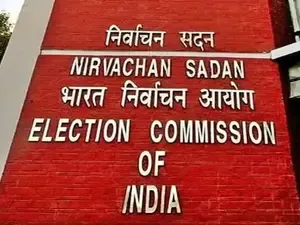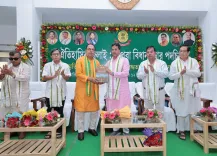What Anomalies Did ECI Discover in Bihar's Voter Rolls?

Synopsis
Key Takeaways
- Over 52 lakh discrepancies identified in Bihar's voter rolls.
- 18.66 lakh voters confirmed deceased.
- 26.01 lakh voters have relocated permanently.
- Deadline for objections extended to September 1.
- Collaboration among political parties and officials emphasized.
New Delhi, July 22 (NationPress) The Election Commission of India has identified serious inconsistencies in the voter rolls of Bihar during its ongoing Special Intensive Revision (SIR) initiative, uncovering that more than 52 lakh electors are either deceased, have moved to different constituencies, or are registered at multiple locations.
The revelations, shared in a press note dated July 22, highlight the extensive cleanup required before the publication of the draft electoral roll set for August 1.
The Commission reports that 18.66 lakh voters have been confirmed deceased, 26.01 lakh have permanently relocated to other constituencies, and 7.5 lakh are listed in more than one place. Additionally, 11,484 electors remain untraceable. These discrepancies account for 6.62 percent of Bihar’s total electorate, which was 7.89 crore as of June 24, 2025.
The SIR initiative has mobilized a vast network of nearly one lakh Booth Level Officers (BLOs), four lakh volunteers, and 1.5 lakh Booth Level Agents (BLAs) appointed by district presidents of 12 major political parties. Their coordinated effort is aimed at ensuring accurate representation of all eligible voters in the forthcoming draft roll.
To date, 7.16 crore Enumeration Forms have been submitted, covering 90.67 percent of the electorate, with 90.37 percent already digitized. However, 21.35 lakh forms are still outstanding, leading the Commission to extend the deadline for public objections regarding additions, deletions, or corrections from August 1 to September 1.
Election officials, including Chief Electoral Officers (CEOs), District Electoral Officers (DEOs), Electoral Registration Officers (EROs), and BLOs, have conducted meetings with political party representatives to share comprehensive lists of affected voters. This collaborative strategy aims to enhance transparency and ensure that the final rolls reflect authentic voter data.
The Commission’s findings emerge amid increasing political scrutiny surrounding voter disenfranchisement and electoral integrity. While the cleanup is positioned as a technical process, its consequences could be significant, especially in constituencies with high rates of duplication or migration.
With the draft rolls set to be published in less than two weeks, the Election Commission is encouraging citizens to actively engage in the verification process. The final electoral roll, anticipated later this year, will play a vital role in shaping Bihar’s democratic landscape leading up to the upcoming Assembly elections.






